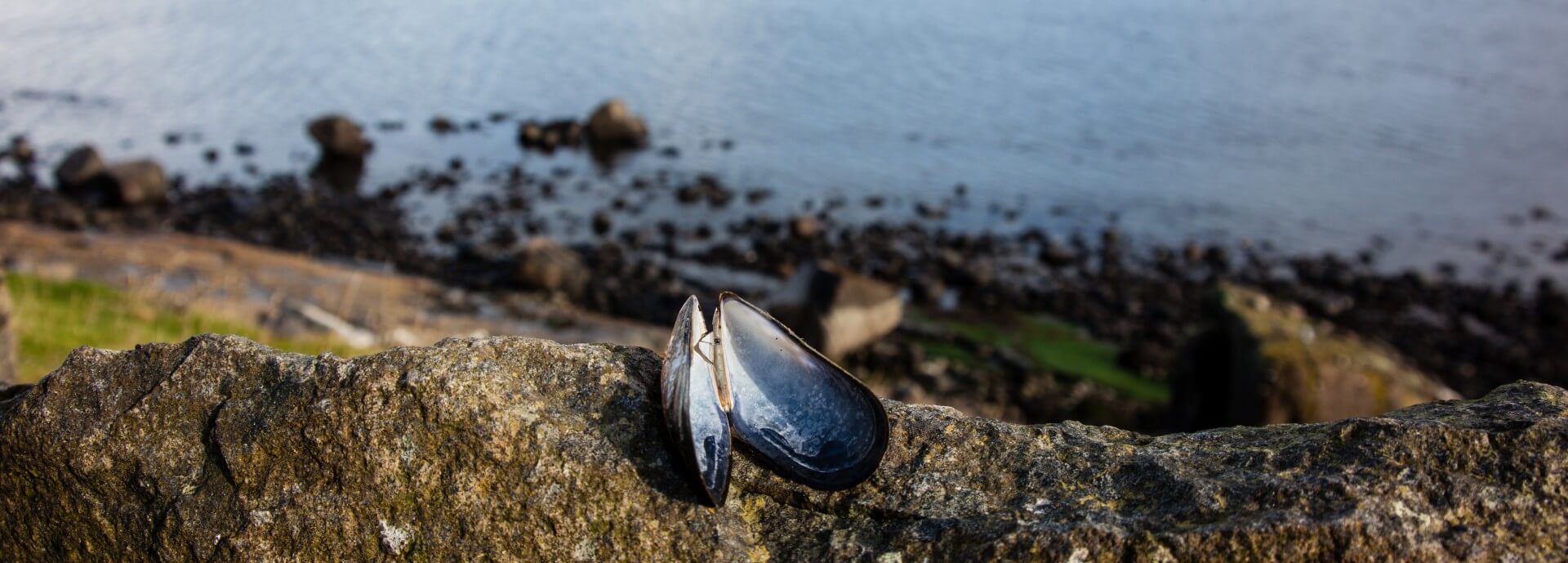Innovative new research by the University of Stirling’s Institute of Aquaculture could help improve mussel farming practices and lead to increased production.
Blue mussel aquaculture is an important sustainable and eco-friendly way of producing a protein source, but the industry has been facing challenges resulting in production fluctuations.
Mussel farming has a low impact on the environment because they require no food, grow on ropes and, by nature of being bivalves, they even clean the water around them. They also sequester carbon from the atmosphere in their shells.

Institute of Aquaculture, Faculty of Natural Sciences
Understanding the connectivity among mussel populations and the roles of source and sink stocks is crucial for protecting mussel farming areas and ensuring that the mussel populations remain sustainable.
The University of Stirling study saw scientists take samples from farms on Scotland’s Atlantic coast before carrying out genetic analysis.
Researchers discovered regular genetic mixing changes local populations. The findings could help mussel farmers with site selection, stocking strategies, and management practices.
This could lead to more consistent production and improved profitability for the mussel farming industry and contribute to the overall health and resilience of marine ecosystems in Scotland.
Researchers also found that the southwest coast is particularly important for growing mussel populations, meaning that some areas act as net sources (south) or sinks for mussel populations (north).
The mussel farm in Loch Eil, which belongs to the southern west coast cluster, serves as a source of larvae (infant mussels), while areas in the Outer Hebrides and northern west coast, such as the mussel farms in Loch Roag and Badcall Bay, act as sinks, receiving larvae from other locations.
Sink stocks play an important role in maintaining genetic diversity within a population, providing benefits such as increased resilience to environmental stresses, improved adaptability to changing conditions, and promoting the long-term survival of the population.
Sustainability
Lead researcher Dr Ana Corrochano-Fraile said: This is the first-time research like this has been done in Scottish waters. Understanding the connectivity among mussel populations and the roles of source and sink stocks is crucial for protecting mussel farming areas and ensuring that the mussel populations remain sustainable.
“This is important for maintaining a healthy marine ecosystem as mussels are a crucial part of the food chain and their decline can have cascading effects on other species.
“By identifying source and sink stocks, managers can implement measures to protect and maintain these areas to ensure the sustainability of mussel populations and the ecosystem as a whole.”
The paper Estimating blue mussel (Mytilus edulis) connectivity and settlement capacity in mid-latitude fjord regions was published in the journal Communications Biology.

